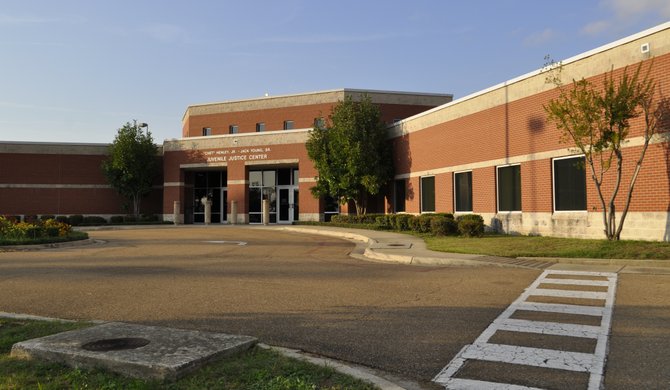The Henley Young Youth Justice Center has “substantially” complied with three out of 71 areas a federal settlement agreement indicates improvements are needed. Now, attorneys are arguing over whether that’s a little or a lot. Photo by Trip Burns.
In the fall of 2010, after a 17-year-old named D.I. threatened to commit suicide at the Henley Young Youth Justice Center, a juvenile detention officer responded that if the teen was successful then it would be one fewer person for the staff to deal with.
When staff members taunting mentally ill kids is the baseline, the bar is so low that any improvement seems like a lot of improvement.
Two years after a federal consent decree and a lawsuit against the Hinds County Board of Supervisors over abuse that D.I. and other children say they suffered at the Hinds County-run youth jail, attorneys for the plaintiffs and county officials are at an impasse over exactly how much progress has been made at the facility.
The settlement agreement outlines 71 areas ranging from the cleanliness of the floors, adequate staffing and staff training to the range of educational programs offered in which Henley-Young needs to comply. On Feb. 27, the Southern Poverty Law Center, which, along with Disability Rights Mississippi represented plaintiffs in the suit, sought a federal contempt order against the county for failing to come into "substantial compliance" with any of the provisions the consent decree outlines.
"They have made some progress, but it's minimal, and they definitely have a long way to go," Corrie Cockrell, an SPLC staff attorney, told the Jackson Free Press.
Under the agreement, an independent monitor visits the facility once per quarter and submits a progress report to the federal court. Leonard B. Dixon, a juvenile-justice expert from Michigan, has filed six such reports, including one on the same day the SPLC filed its contempt motion in district court. It shows that the facility has made "substantial compliance" in three areas (the SPLC plans to amend its motion to reflect that progress) and 13 provisions of "partial compliance."
"Although there is a way to go this is commendable. The facility must now maintain this momentum," Dixon wrote in the report.
Cockrell said the SPLC filed the contempt motion only "after numerous attempts to resolve the issues with county officials" failed. The SPLC wanted the county to voluntarily extend the settlement agreement for another two years.
But Pieter Teeuwissen, the Hinds County board attorney, calls the accusation that the county was unwilling to negotiate with the SPLC "patently false."
"The county has repeatedly asked SPLC to propose a narrowly tailored extension of the consent decree," Teeuwissen told the JFP. "The SPLC wants to extend the entire thing as if no progress has been made."
One of the main sticking points appears to be the length of proposed settlement extension.
In an Jan. 27 email to Cockrell, Hinds County Special Counsel Lisa Ross wrote: "I am getting a lot of pushback on this extension. The board (of supervisors) at this juncture will not agree to an 18th month extension." Ross proposed a six-month extension with the understanding of implementing another six-month extension if necessary.
Among the areas where the facility had made substantial progress were no restraint chairs, chemical restraints or firearms being present in the facility. Cockrell says those are areas in which the county could have been substantially compliant months ago.



Comments
Use the comment form below to begin a discussion about this content.